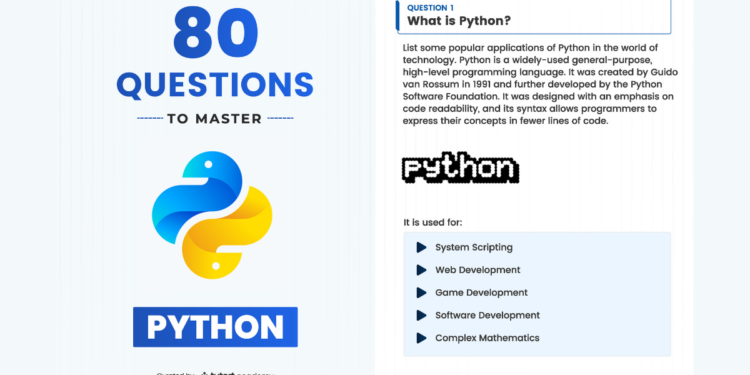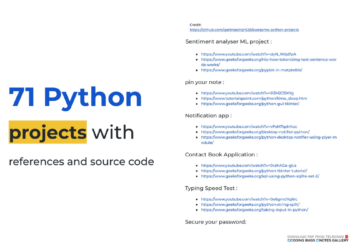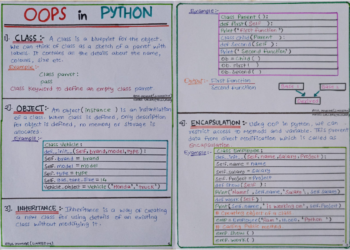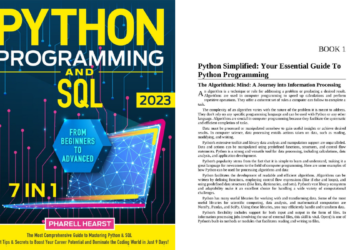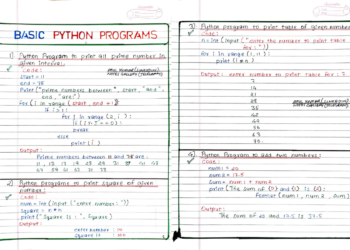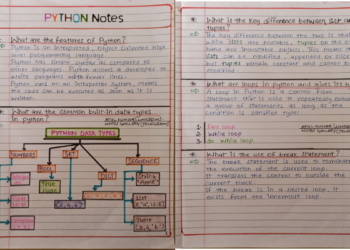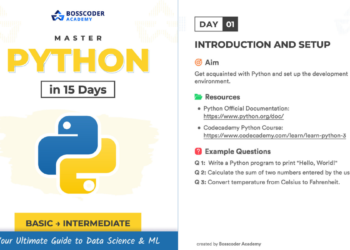Python, renowned for its readability and versatility, stands as a programming language with wide-ranging applications. Whether you’re a newcomer or a seasoned developer, the “80 Questions To Master Python PDF” aims to be your comprehensive companion in the journey of mastering Python.
This guide is not just about answers; it’s about the questions that will deepen your understanding and proficiency in Python programming.
Overview of The Guide
This guide is not a traditional tutorial; it’s a collection of carefully curated questions designed to challenge and enhance your Python skills. Each question is a puzzle waiting to be solved, providing an interactive and engaging way to reinforce your knowledge.
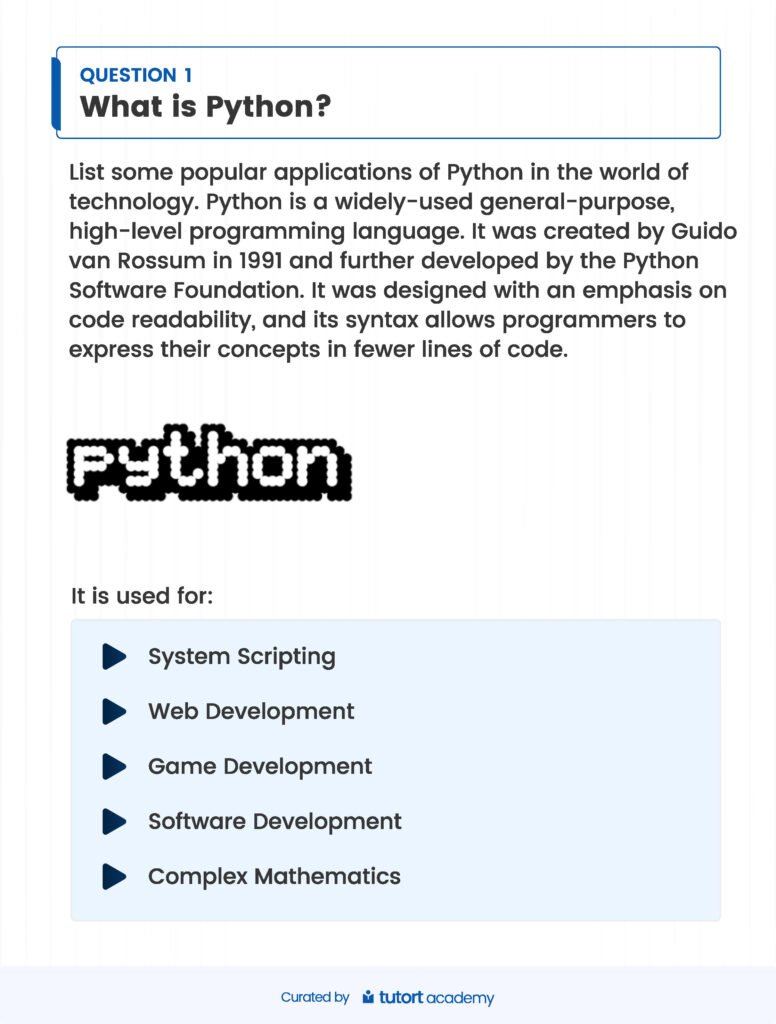
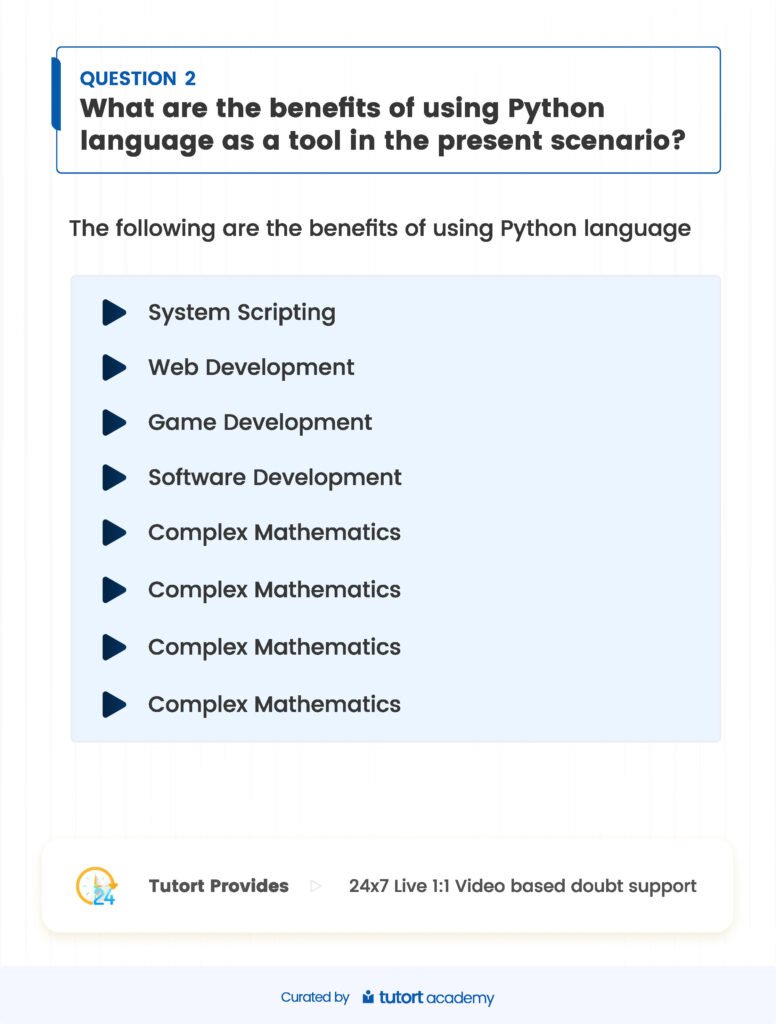
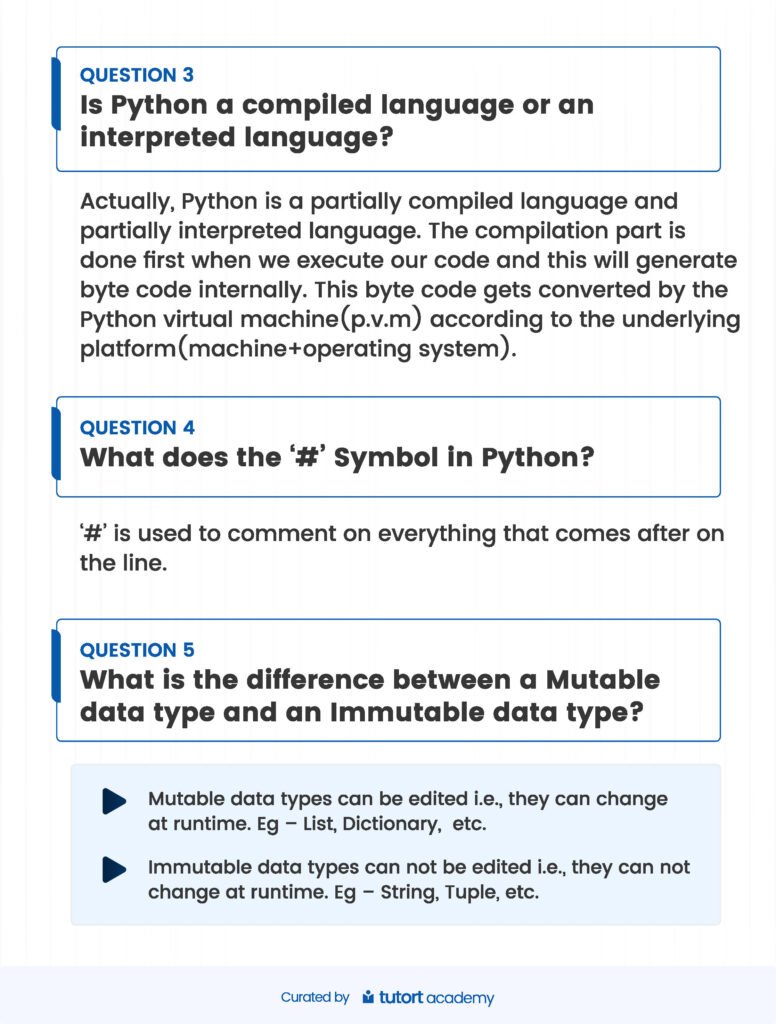
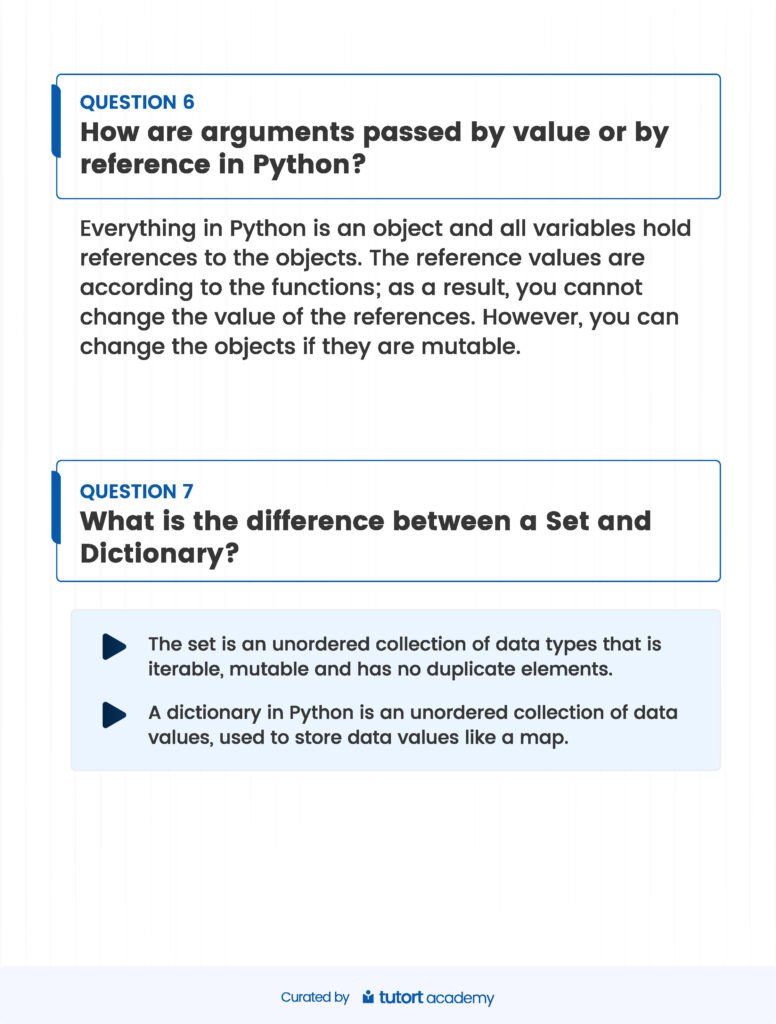

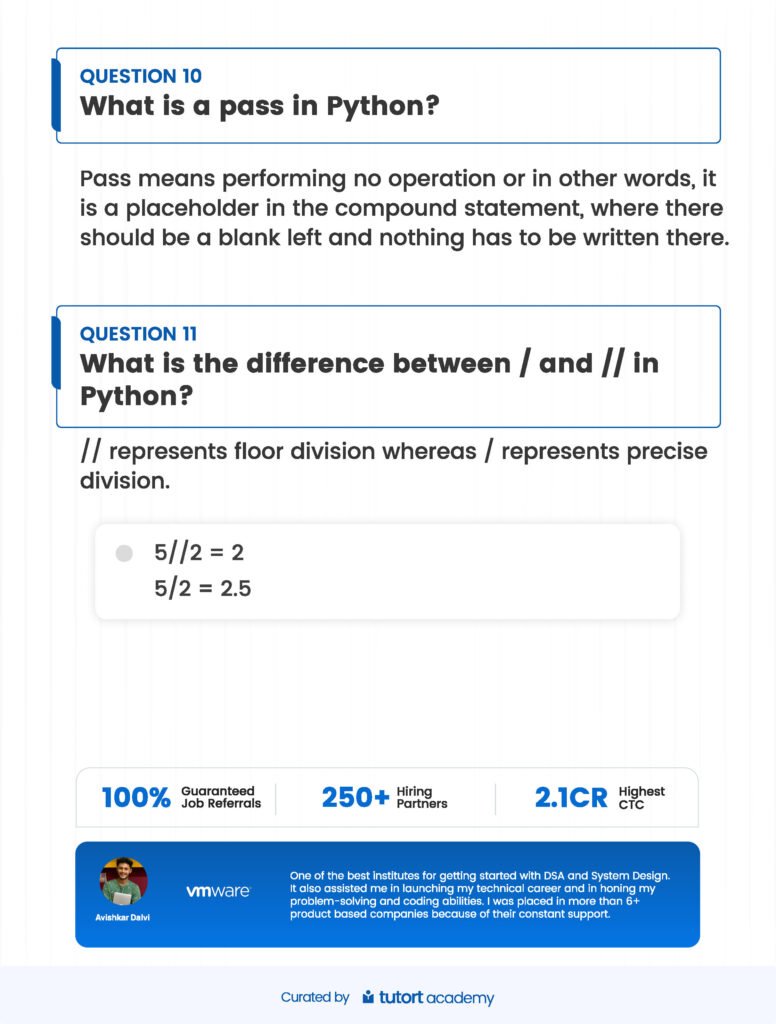
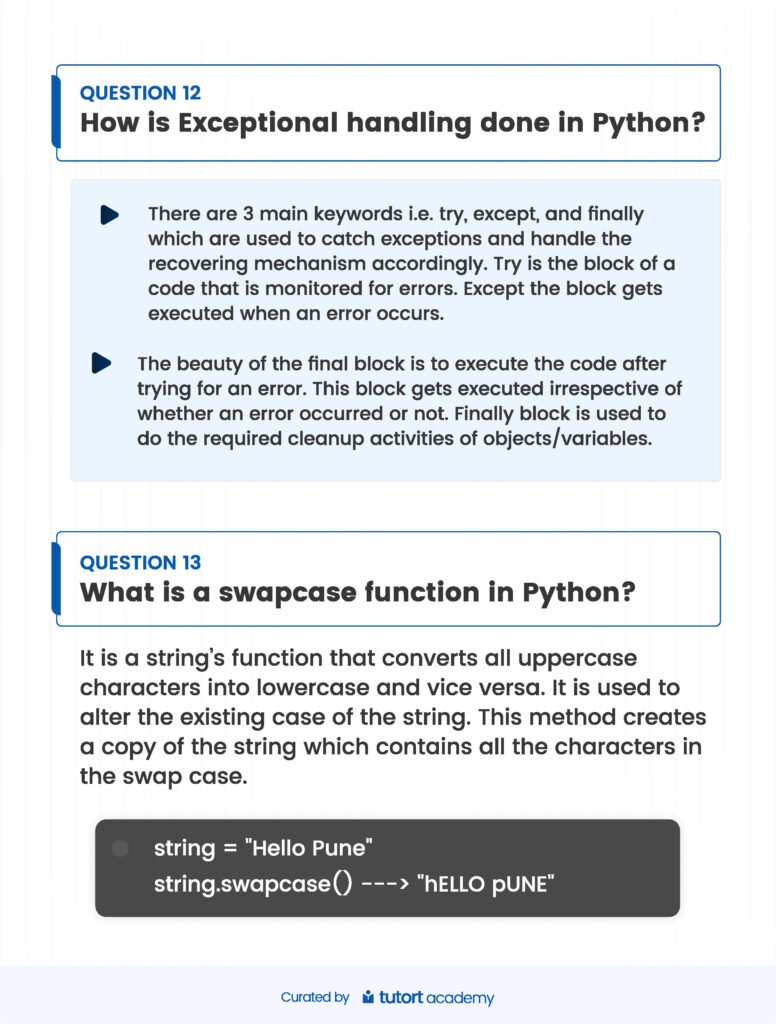
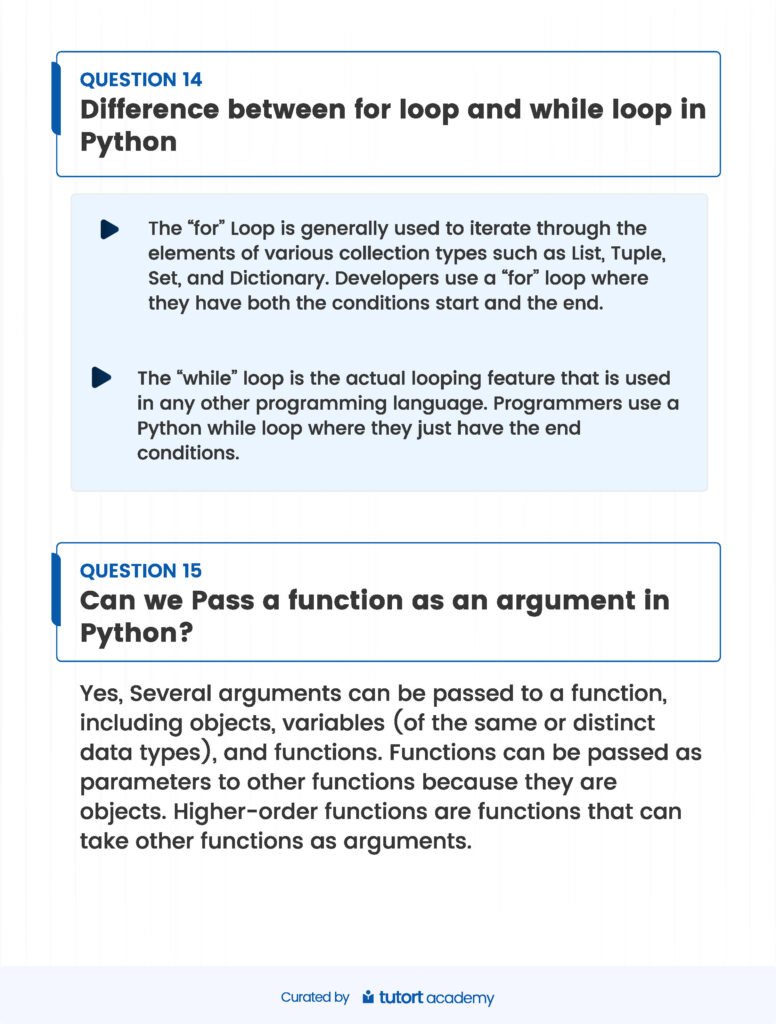
The content spans a diverse range of topics, ensuring a holistic coverage of Python concepts, from the basics to advanced techniques.
The Content Of The Guide
a. Python Basics
The guide commences with questions that test your understanding of Python fundamentals, including variables, data types, and basic syntax. This section sets the stage for a comprehensive exploration of the language.
b. Control Flow and Functions
As you progress, the questions delve into control flow statements, loops, and the nuances of defining and using functions. This section aims to sharpen your ability to structure and control the flow of your Python programs.
c. Data Structures
The guide challenges your knowledge of Python’s data structures, including lists, dictionaries, sets, and tuples. You’ll navigate through questions that test your proficiency in manipulating and organizing data efficiently.
d. Object-Oriented Programming (OOP)
An extensive section is dedicated to OOP principles, where questions will guide you through the creation of classes, inheritance, polymorphism, and encapsulation. Mastering OOP is essential for writing modular and scalable Python code.
e. File Handling and Modules
Questions related to file handling and modules will broaden your understanding of how Python interacts with external files and how modularization can lead to more maintainable and reusable code.
f. Advanced Topics and Libraries
The guide concludes with advanced questions covering topics like decorators, generators, and comprehension, along with questions related to popular Python libraries such as NumPy, Pandas, and requests.
Why This Guide
a. Practical Application of Knowledge
The focus on questions is intentional; it encourages active engagement and problem-solving. By grappling with these questions, you not only reinforce your theoretical knowledge but also gain practical problem-solving skills, a crucial aspect of effective Python programming.
b. Comprehensive Coverage
The guide’s 80 questions are strategically selected to provide a well-rounded understanding of Python. Whether you’re a beginner looking to solidify your basics or an experienced developer aiming to fill gaps in your knowledge, these questions cover the entire spectrum of Python programming.
c. Adaptive Learning
The guide is designed to be adaptive, catering to a wide audience with varying levels of expertise. Whether you use it for self-assessment, team training, or interview preparation, the diverse range of questions ensures relevance and applicability to different contexts.
Conclusion
“80 Questions To Master Python PDF” is not just a guide; it’s a dynamic tool to elevate your Python programming skills. By engaging with the questions, you’ll not only find answers but also uncover new perspectives and insights into Python’s intricacies. This guide is your passport to mastering Python, enabling you to tackle real-world challenges with confidence and expertise.
Download From Link
Ready to take on the challenge and master Python? Download the PDF guide from the following link: Download 80 Questions To Master Python PDF.
Let this guide be the catalyst for your Python journey, pushing you to new heights of proficiency and unlocking the full potential of this powerful programming language. Happy coding!
